Abstract
What literary and philosophical resources can help us situate ourselves ethically during and after plague time? Returning to Camus’ The Plague provides a thoughtful entry to the timeless time of Covid-19. Isabel Wilkerson describes and challenges white supremacy as plague and caste system, both blatant and in its less obvious (to whites) forms. Emmanuel Levinas and Knud Ejler Løgstrup bring us the priority of the other and an ethic of responsibility. Thus, we must consider how these plagues challenge our clinical work and our clinical attitudes.
Biography
Educated in philosophy, clinical psychology and psychoanalysis, Donna Orange, PhD, PsyD teaches at NYU Postdoc (New York); IPSS (Institute for the Psychoanalytic Study of Subjectivity, New York); and in private study groups. She also offers clinical consultation/supervision in these institutes and beyond. Her recent books are Thinking for Clinicians: Philosophical Resources for Contemporary Psychoanalysis and the Humanistic Psychotherapies (2010), and The Suffering Stranger: Hermeneutics for Everyday Clinical Practice (2011), Nourishing the Inner Life of Clinicians and Humanitarians: The Ethical Turn in Psychoanalysis (2016), Climate Crisis, Psychoanalysis, and Radical Ethics (2016), and most recently, Psychoanalysis, History, and Radical Ethics: Learning to Hear (2020). She has been a Visiting Professor of Phenomenology at Duquesne University during the fall of 2021.
Learning Objectives
At the end of this presentation participants will be able to:
1. Explain how radical ethics changes clinical attitudes.
2. Explain how a caste system in the US appears in daily clinical work.
3. Identify the ethical elements in the clinical work of the protagonist in Camus’ The Plague.
4. Compare the clinical experience of the covid pandemic with that described by Camus in The Plague.
Associated Reading
Butler, J. (2020). The force of nonviolence : an ethico-political bind. London ; New York, Verso.
"Situating non-violence at the cross-roads of the ethical and political, The Force of Non-Violence brings into focus the ethical binds that emerge within the force field of violence. Non-violence is very often misunderstood as a passive practice that emanates from a calm region of the soul, or as an individualist ethic with an unrealistic relation to existing forms of power. This book argues for an aggressive form of non-violence that struggles with psychic ambivalence and seeks to embody social ideals of inter-dependency and equality. Only through a critique of individualism can the ethical and political ideal of non-violence be understood in relation to the ideal of equality and the demand for grievability. In this psychosocial and philosophical reflection that draws upon Foucault, Fanon, Freud, and Benjamin, Butler argues that to oppose violence now requires understanding its different modalities, including the regulation of the grievability of lives. The book shows how "racial and demographic phantasms" enter into the rationale for inflicting state violence and other modes of "letting die" by investing violence in those who are most severely exposed to its effects and subjugated to its lethal power. The struggle for non-violence is found in modes of resistance and movements for social transformation that separate off aggression from its destructive aims to affirm the living potentials of radical egalitarian politics”--
Fink, H. and R. Stern (2017). What is ethically demanded? : K. E. Løgstrup's philosophy of moral life. Notre Dame, University of Notre Dame Press.
Orange, D. (2017). Climate Crisis, Psychoanalysis, and Radical Ethics. London, Routledge.
